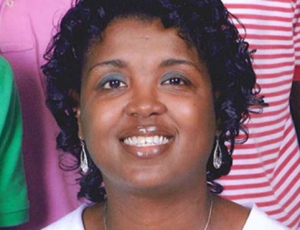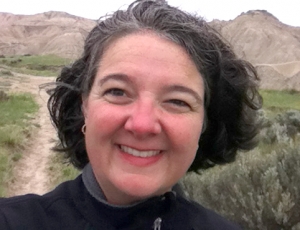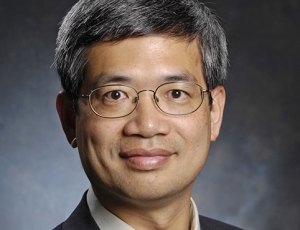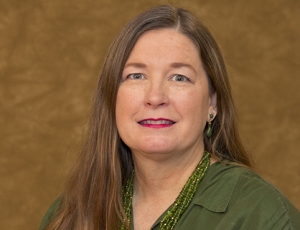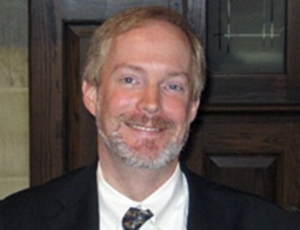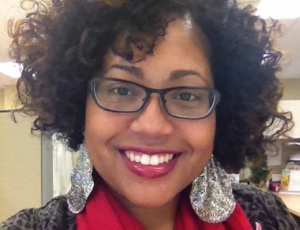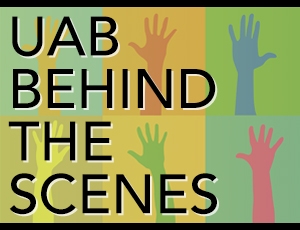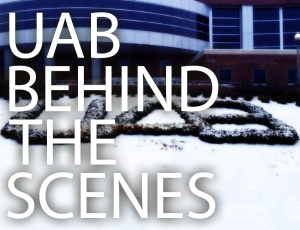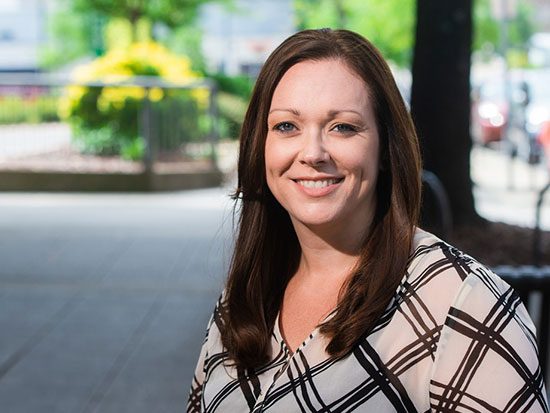 "It can feel like minutiae, but the devil really is in the details," said Katie Smith, J.D., senior grants and contracts officer on the Industry team in the Office of Sponsored Programs. "We are going through these agreements line by line.... I'm always going to back up UAB and the researchers over a multi-billion-dollar pharma company that is complaining about a comma placement."The next time you blithely click past a War and Peace-sized terms and conditions page on your phone, spare a thought for the people who have to agonize over every word in contracts like these.
"It can feel like minutiae, but the devil really is in the details," said Katie Smith, J.D., senior grants and contracts officer on the Industry team in the Office of Sponsored Programs. "We are going through these agreements line by line.... I'm always going to back up UAB and the researchers over a multi-billion-dollar pharma company that is complaining about a comma placement."The next time you blithely click past a War and Peace-sized terms and conditions page on your phone, spare a thought for the people who have to agonize over every word in contracts like these.
"Most people's experience with contracts usually comes in the form of software agreements — a giant block of tiny text that they agree to without even thinking, because if they don’t, they won't get to move on and download iTunes or whatever," said Katie Smith, J.D., senior grants and contracts officer in the Office of Sponsored Programs. Smith, a member of OSP’s Industry team, negotiates agreements with pharmaceutical companies and other sponsors of clinical studies that make up a sizeable portion of UAB’s annual $600 million-plus in research funding.
Like most of her colleagues, Smith is a lawyer, with an attorney’s trained eye for problematic commas and clauses. "All of us are coming at this with a full understanding of contracts and language and interpretation and how much it can cost when interpretations differ," Smith said. "It can feel like minutiae, but the devil really is in the details. We are going through these agreements line by line, making sure that every word is compliant not just with how OSP does things, and how our Office of Counsel and intellectual property teams do things, but with Alabama law and federal law.”
Study sponsors may include language giving them the ability to control what a researcher includes in their publications. “At the end of the day, that’s an issue of controlling the state’s voice,” Smith said. “We are a state institution, and that’s an export-control problem. And so I tell them, ‘We will agree to not release your confidential information, but we have to be able to talk about what happens in the study and release the results.’ That protects the institution, and it protects the researchers. A big part of what they are getting out of this is contributing to their field, and we make sure they can do that. I'm always going to back up UAB and the researchers over a multi-billion-dollar pharma company that is complaining about a comma placement."
‘We’re making a difference’
Smith and her colleagues have more work, and responsibility, than ever. In the past several years, UAB has set all-time records for research funding. In 2020, grants and contracts reached a record high of more than $638 million; since 2016, research awards at UAB have grown by 41%. Behind every one of those awards — reviewing applications, negotiating contracts, verifying that required training has occurred, handling sub-awards to other institutions — are specialists from OSP.
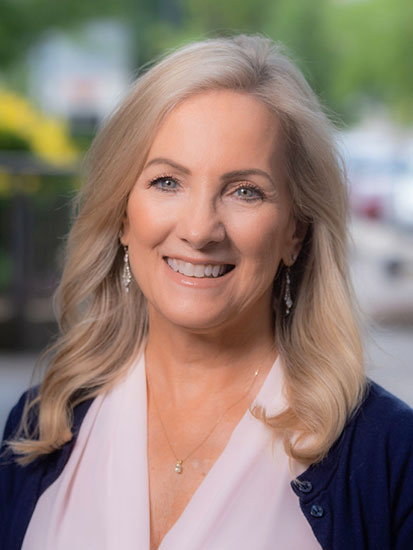 "It's not just paperwork," said Melinda Cotten, associate vice president for Research Business Operations and director of OSP. "We can play a small part in maybe finding a new treatment or even a cure for disease. That's what drives me and what drives our staff."Before COVID intervened, Melinda Cotten, associate vice president for Research Business Operations and director of OSP, made it a point to invite faculty to her staff meetings so that her team could get a broader picture “of how their work is part of the overall mission of what we're doing in our research enterprise at UAB," she said. "It's not just paperwork. We're making a difference in mankind through health care. We can play a small part in maybe finding a new treatment or even a cure for disease. That's what drives me and what drives our staff."
"It's not just paperwork," said Melinda Cotten, associate vice president for Research Business Operations and director of OSP. "We can play a small part in maybe finding a new treatment or even a cure for disease. That's what drives me and what drives our staff."Before COVID intervened, Melinda Cotten, associate vice president for Research Business Operations and director of OSP, made it a point to invite faculty to her staff meetings so that her team could get a broader picture “of how their work is part of the overall mission of what we're doing in our research enterprise at UAB," she said. "It's not just paperwork. We're making a difference in mankind through health care. We can play a small part in maybe finding a new treatment or even a cure for disease. That's what drives me and what drives our staff."
The stakes were never clearer than during the first months of the COVID epidemic. New research funding opportunities from federal agencies, pharmaceutical companies and private foundations flooded in; winning these grants and contracts would bring potentially lifesaving clinical trials and other studies to people across Alabama. “We worked on 200 or so COVID projects over four and a half months,” Cotten said. “It was a heroic effort by the whole team.”
Day in the life
OSP officers are divided into three main teams based on the major categories of research sponsor: federal, industry and nonprofit. Each officer works with a dozen or more assigned departments across campus in order to develop relationships with principal investigators and the department administrators who help researchers prepare and collect the mountain of information that each project requires.
On a recent morning, Caroline Farris, J.D., a grants and contracts officer in OSP’s Nonprofit group, was reviewing agreements for a clinical study of COVID-19 effects in patients with cystic fibrosis.
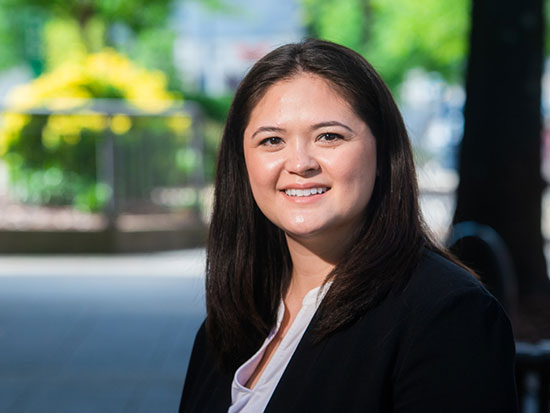 "Our job is to protect UAB in sponsored research," said Caroline Farris, J.D., a grants and contracts officer in OSP’s Nonprofit group. "We go to great lengths to meet the needs of our researchers at UAB while also protecting UAB from an institutional compliance perspective.""For awards, reviewing and negotiating agreements for execution may take anywhere from a few days to a few months, depending on the contract complexity and the sponsor," Farris said. (For proposal submissions, the Nonprofit group aims to review and respond to departments within two business days.) "Our review process applies to every award to ensure, no matter how small [the amount involved], UAB remains compliant from an institutional perspective."
"Our job is to protect UAB in sponsored research," said Caroline Farris, J.D., a grants and contracts officer in OSP’s Nonprofit group. "We go to great lengths to meet the needs of our researchers at UAB while also protecting UAB from an institutional compliance perspective.""For awards, reviewing and negotiating agreements for execution may take anywhere from a few days to a few months, depending on the contract complexity and the sponsor," Farris said. (For proposal submissions, the Nonprofit group aims to review and respond to departments within two business days.) "Our review process applies to every award to ensure, no matter how small [the amount involved], UAB remains compliant from an institutional perspective."
UAB’s research success in the past several years relies, in part, on OSP’s ability to move as quickly as possible while maintaining regulatory, compliance and legal requirements, Cotten says. Higher-education specialists Huron Consulting Group recently compared OSP’s performance to peers across the country. “The average nationwide was about 38 contracts completed per officer per year,” Cotten said. “We are averaging 136 contracts per person per year.”
“I like to ensure that any communications on my projects are responded to within 48 hours,” said Lee Schultz, a senior grants and contracts specialist on the Federal team. Schultz knows what it’s like “on the other side of the table,” he said. He was a financial manager for a research institute at Texas A&M before he came to Birmingham. "I know that the faster you can get it back to the PI, the fresher it will be for them to look at it again and everything moves forward that much quicker," he said.
One of Schultz’s recent tasks was completing the risk assessment for a new sub-award request on a UAB-led grant. The PI had proposed contracting the work to a specific researcher at an Ivy League university. Schultz’s job was to review the risks involved in working with that university and the principal investigator at the university responsible for the sub-award. "As I'm working through it, I'm updating everything in the IRAP portal [UAB's electronic research administration system] so the PI can go in and see where things stand,” Schultz said. “I know that if I were a researcher, I would be checking that IRAP regularly, so I was always on top of the status on my proposals.”
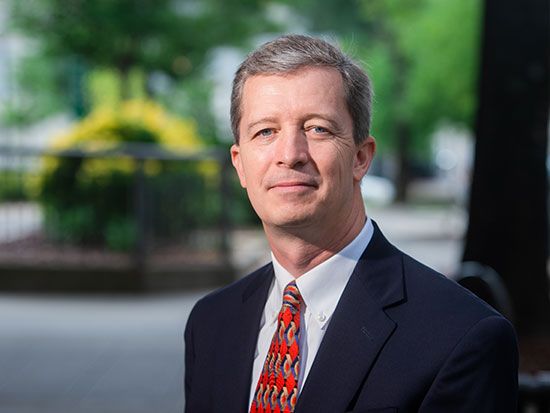 "There is not a single project that is the same as the last, so you are always learning, always negotiating,” said Lee Schultz, a senior grants and contracts specialist on the Federal team. “That provides a lot of challenges, but I like the challenges. I like the opportunity to be given a problem and I have to solve it."The work is extremely challenging but rewarding, Schultz explains. "There is not a single project that is the same as the last, so you are always learning, always negotiating,” he said. “That provides a lot of challenges, but I like the challenges. I like the opportunity to be given a problem and I have to solve it."
"There is not a single project that is the same as the last, so you are always learning, always negotiating,” said Lee Schultz, a senior grants and contracts specialist on the Federal team. “That provides a lot of challenges, but I like the challenges. I like the opportunity to be given a problem and I have to solve it."The work is extremely challenging but rewarding, Schultz explains. "There is not a single project that is the same as the last, so you are always learning, always negotiating,” he said. “That provides a lot of challenges, but I like the challenges. I like the opportunity to be given a problem and I have to solve it."
New every time
"Our job is to protect UAB in sponsored research," Farris said. "We go to great lengths to meet the needs of our researchers at UAB while also protecting UAB from an institutional compliance perspective."
Keeping up with the latest changes from a host of agencies and lawmaking bodies is a never-ending task. “The law is constantly changing, and so are the tools that we use,” Schultz said. "For instance, when a government agency revamps a website that is a key part of our workflow, we have to figure out how to adapt, create a new process and then share that training with our colleagues."
“Researchers often say, this project is just like the last one we did, or like the one my colleague just did,” Smith said. "But even when we are dealing with the same parties, the rules change because the law is always changing. And a company or another institution may be interpreting a new law one way while we are interpreting it another way. We have to figure out how to meet in the middle. It's almost never 'take it or leave it' in industry negotiation. It's 'this is our best position.' Usually we can find a compromise. But it takes a few emails and phone calls to get there.”
Ultimately, "I love that some very, very small part of what I do is contributing to research that helps people be healthier and happier in their lives,” Smith said. "What we are doing is all required to protect UAB and its standing as a research institution, but also to protect our researchers. I don't work in an ER or in a lab, but I can help make sure that what happens here at UAB is right and fair.”
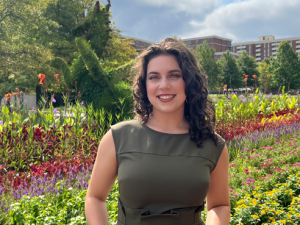
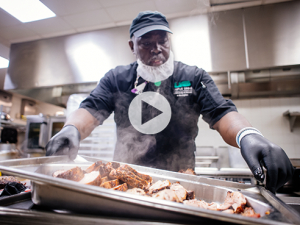
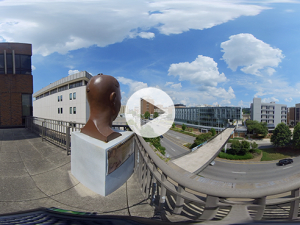
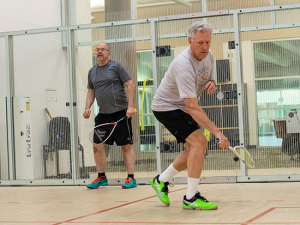
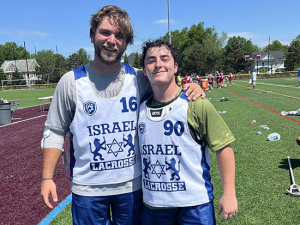
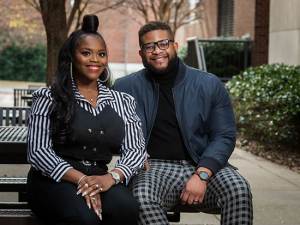
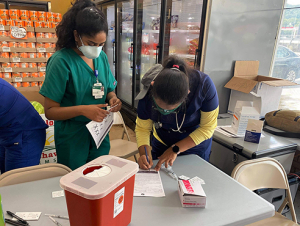
 The student-led group partnered with the Alabama Statewide Area Health Education Centers program to distribute Pfizer vaccine doses.
The student-led group partnered with the Alabama Statewide Area Health Education Centers program to distribute Pfizer vaccine doses.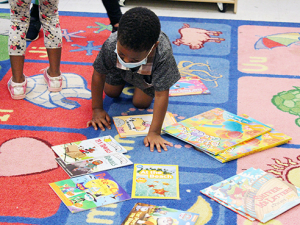
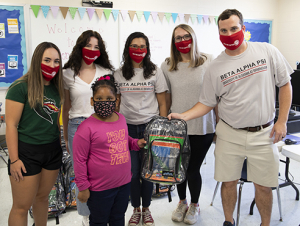
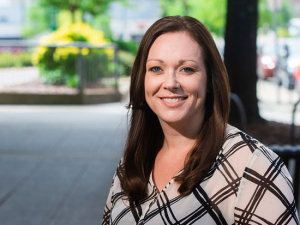
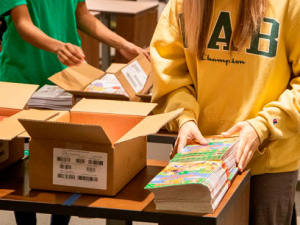
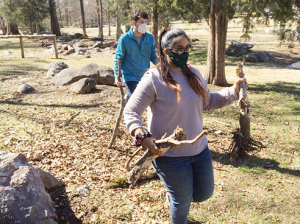
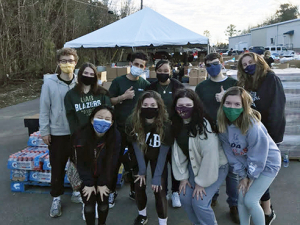
 Fifteen students helped sort and prep donated items and distribute them at the Gardendale Civic Center drive-thru.
Fifteen students helped sort and prep donated items and distribute them at the Gardendale Civic Center drive-thru.
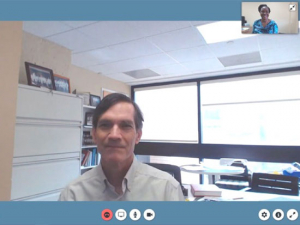
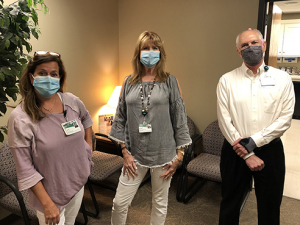
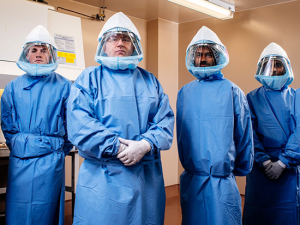
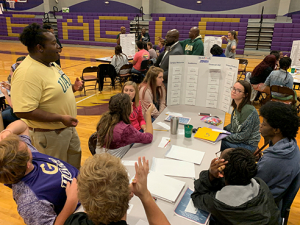
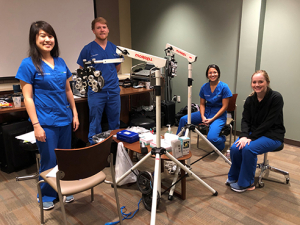
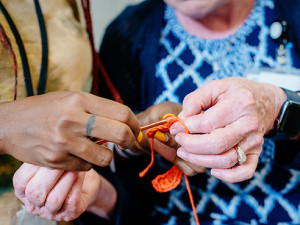
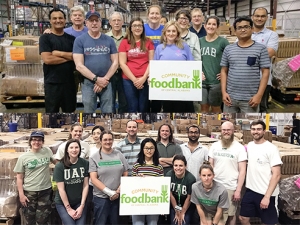
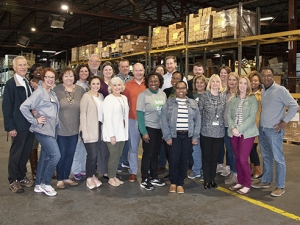
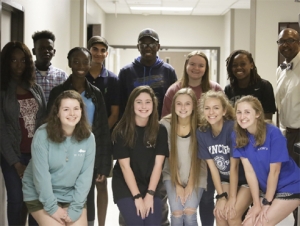
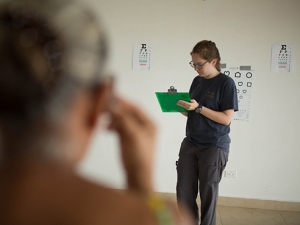
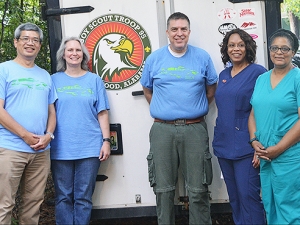
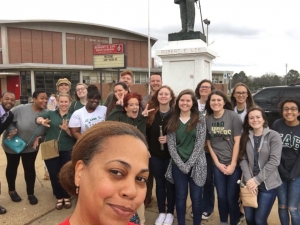
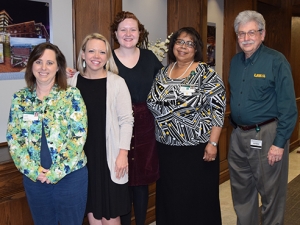
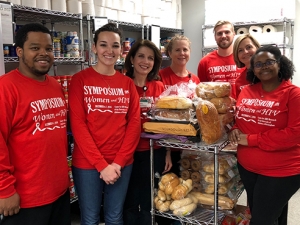
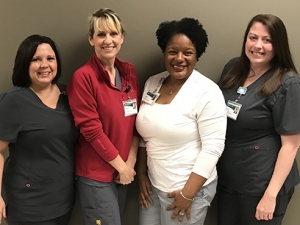
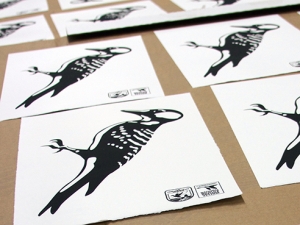

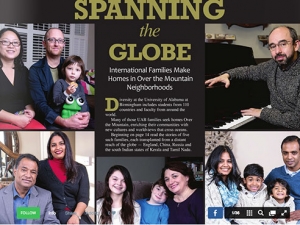
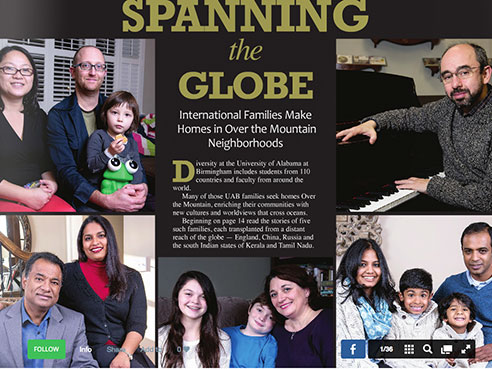 UAB’s ability to recruit employees worldwide adds promotes diversity in Birmingham and surrounding areas. Meet these five families featured in the paper’s Jan. 15 issue of the “
UAB’s ability to recruit employees worldwide adds promotes diversity in Birmingham and surrounding areas. Meet these five families featured in the paper’s Jan. 15 issue of the “